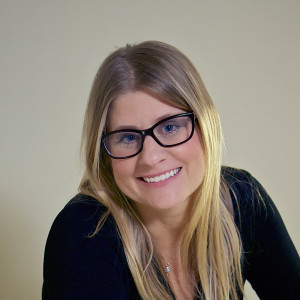
CIW Q&A: Liz Davidson on the Smart Approach to Your Money
On Tuesday, October 13, Financial Finesse CEO Liz Davidson will join Janet Bodnar and William Heard to answer Everything You Ever Wanted to Know About Your Money (And Were Too Afraid to Ask). Via an e-mail interview, we spoke to Davidson, author of What Your Financial Advisor Isn’t Telling You, in advance about some of those burning financial questions you don’t want to ask your accountant.
Why did you start Financial Finesse?
I was running a hedge fund during the dot-com era when I realized there was a need for a company like Financial Finesse. I was working with very wealthy clients, who I realized were making huge mistakes with their money. They weren’t diversified, and I could see the looming crash ahead. It was an ah-ha moment for me: If these basic mistakes are being made by people who have enough money to rebuild their portfolios in the event of a catastrophe—and who can afford to hire accountants and brokers and financial planners—then what about the average person? I realized people needed not just financial guidance, but unbiased financial guidance that wasn’t about how much they had to invest or what their “net worth” was.
Where did you learn the tricks to being an investor with “financial finesse”?
After college, I landed a job in New York City as an investment banker and learned the dynamics of how the market works. I also learned something that I think was even more critical: A lot of investing decisions are driven by emotion, rather than reason. This was costing investors a lot of money over the long term. Subsequently, I launched my hedge fund and created a model that eliminated the emotional decision making that costs investors by driving down returns. To this day, this is a part of our overall mission at Financial Finesse. We aim to help investors make sure they set themselves up for long-term success by educating them on how to manage their emotions alongside market fluctuations.
How do you suggest an individual prepare for retirement? How did this differ across Millennials, Gen X, etc.?
What we find is that people want to retire but just do not know where to start. A lot of times, they are overwhelmed by the present and saving for the future is just not on their radar. Our financial planners encourage people to run a retirement calculator to get an estimate on what they’ll need first. Inputting the information into the calculator stirs up a lot of questions about the future. How much of my income do I want to replace? How much is my social security benefit? How long should I plan for retirement income? How does inflation affect my savings? For many, this is the first time they can visually see the effect of their current savings and sometimes is the best tool to encourage employees to save more.
Our guidance for Millennials is to start early. For Gen X-ers, it’s about re-evaluating their current situation and making adjustments if they’re behind. For Boomers with a much shorter time frame to retirement, it’s really about giving them a reality check: reviewing all income sources, doing a retirement budget to estimate future expenses and realistically assessing if they have enough income to retire. If not, it may be taking a second or part-time job, retiring a few years later, downsizing or paying off debts to reduce how much income they may need in retirement.
What do you find are the common mistakes people fall into with their money?
We see three common mistakes.
First, they don’t have a budget in place. As savvy as some people are with their investments, you’d be shocked to know how many of them struggle with simple day to day financial issues.
Second, they’re carrying too much debt. A lot of people don’t realize the impact large debt loads have on their financial picture.
Third, out of sight, out of mind. We are instant gratification creatures. Things like retirement and estate planning tend to fall on the wayside when people get too focused on their standard of living now, and don’t focus on the long term.
What is the number one tip you give all individuals looking to better manage their money?
The number one tip I give to people who want to better manage their money is this: No one cares about your money more than you do. The more you know about your money the better you can ensure all areas of your financial life are covered. One of the most critical points is knowing how to use your benefits at work so that they can really work for you. So many people miss out on free money for both their short-term money concerns and long-term goals. Often overlooked benefits are those that help with tuition reimbursement, day-to-day expenses like daycare and dry-cleaning, provide discounted legal, insurance and other services, and the most important, getting free money in their retirement plans, if their employer provides a match. Learn all you can about what you have available and then makes sure you’re taking full advantage of all that apply to you.
Q&As are edited for clarity and length.
Cover photo: By Ken Teegardin from Boulder, SeniorLiving.org





